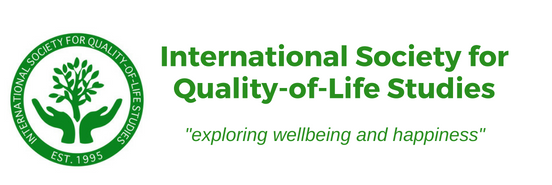Changes in Subjective Well-Being are not Related to Income Growth
Recent research conducted by Richard Easterlin of the University of Southern California and Kelsey J. O’Connor of STATEC Research (Luxembourg) challenges traditional economic policy targets, confirming previous findings that changes in subjective well-being are not related to income growth in the long-run.
The new results, published in the Handbook of Labor, Human Resources and Population Economics, are based on the most extensive relevant data sets, including the Gallup World Poll with more than 120 relevant countries. Even in the relatively less affluent countries, economic growth does not lead to greater subjective well-being. China serves as a notable example – from 1990 to 2018, the country experienced largely unprecedented economic growth but little to no increase in subjective well-being.
The authors address common criticisms. One of the more persistent is based on fluctuations in GDP per capita and subjective well-being. It is true that they are positively related in the short-run, especially when GDP per capita falls in times of recession; however, in longer periods characterized by both recessions and expansions, the impact of economic growth is reduced to nil.
How did wealthier countries get to be better off if economic growth does not lastingly increase well-being? They got a head start implementing the insights from social science – insights such as monetary and fiscal policy to stabilize business cycles, and the social safety net. This implementation did not depend greatly on income however. Germany initiated social insurance in the 1880s when it had real GDP per capita of less than $4000 (in 2011 dollars). Likewise, Costa Rica (who reports subjective well-being among the highest in the world) implemented social policy at a similarly low level of real GDP per capita, approximately $3000 in the 1940s.
The present insights indicate policy makers should go beyond GDP to promote subjective well-being. Additional studies by the authors provide initial evidence supporting full employment and social safety net policies. We need more evidence generally, but know it is possible to promote subjective well-being. On average it has trended upward around the world in the past few decades.
The article provides further support for and explanation of the often-debated Easterlin Paradox. First discovered by Richard Easterlin in 1974, the Easterlin Paradox consists in the findings that richer people (or countries) on average report higher subjective well-being than poorer ones, but over time this relationship vanishes, that is changes in subjective well-being are not related to income growth in the long run.
Social comparisons can explain the seemingly contradictory findings between the point-of-time and time series relationships. People benefit from comparing their incomes with those of the less fortunate (and the less fortunate report less subjective well-being when comparing their incomes to the wealthy), but over time, as incomes increase throughout the population, the incomes of one’s comparison group rises along with one’s own income, which vitiates the otherwise positive effect of own-income growth on subjective well-being.
The full research results are available in the publication:
Easterlin R.A., O’Connor K.J. (2021) The Easterlin Paradox. In: Zimmermann K.F. (eds) Handbook of Labor, Human Resources and Population Economics. Springer, Cham. https://doi.org/10.1007/978-3-319-57365-6_184-1
A free working paper version is available from the Institute of Labor Economics (IZA).
